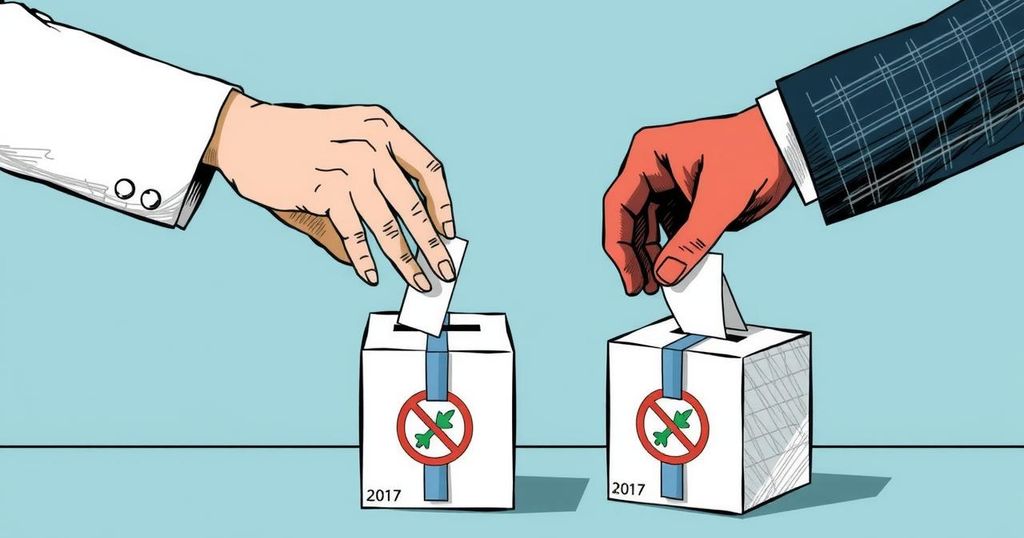The U.S. Treasury Department sanctioned Russian and Iranian entities for disrupting the 2024 presidential elections through disinformation. This follows a broader effort by the Biden administration to counter foreign interference, notably from Russia and Iran, highlighting the ongoing risks to electoral integrity. Among those sanctioned are the Center for Geopolitical Expertise in Russia and the Cognitive Design Production Center in Iran, involved in misleading campaigns aimed at U.S. voters.
On Tuesday, the U.S. Treasury Department imposed sanctions on multiple entities accused of disseminating disinformation in connection with the upcoming 2024 presidential election. This decision is part of a broader effort by the Biden administration to counteract alleged election interference by Russian and Iranian intelligence agencies, reflecting increasing tensions over cyber warfare and misinformation campaigns targeted at American voters.
Among those sanctioned is the Moscow-based Center for Geopolitical Expertise (CGE), founded by Aleksandr Dugin, who has a history of controversial actions tied to pro-Russian efforts in Ukraine. The Treasury stated that the CGE is involved in producing deepfakes and disseminating false information regarding U.S. election candidates, with financial backing from Russia’s military intelligence agency, the GRU.
Additionally, Valery Korovin, the organization’s director known for his nationalist views, was also sanctioned for his role in this disinformation campaign. Reports indicate that the CGE has utilized generative artificial intelligence to create and distribute misleading content across a fabricated network of websites posing as legitimate news sources. Furthermore, Treasury highlighted the manipulation of video content intended to incite discord among voters.
The Iranian entity sanctioned, the Cognitive Design Production Center, is associated with the Islamic Revolutionary Guard Corps (IRGC) and has been implicated in sowing socio-political unrest within the United States as the elections approach. These sanctions follow earlier actions against individuals linked to Iranian efforts in hacking and intimidation related to voter information in the wake of the 2020 presidential election.
The issue of foreign interference in U.S. elections has been a recurring theme in recent political history, raising concerns about the integrity of democratic processes. The Biden administration has undertaken a series of sanctions against foreign entities as part of its commitment to safeguarding elections from external influence and misinformation. Russian and Iranian operatives have been singled out for their alleged roles in cyber campaigns designed to manipulate public perception and incite division among the electorate, particularly as the 2024 elections draw nearer.
The recent sanctions against Russian and Iranian entities underscore the ongoing threat posed by foreign influence in American elections. By targeting organizations involved in spreading disinformation, the U.S. government aims to uphold the integrity of its electoral processes. These actions reflect a broader strategy to deter malicious operations intended to disrupt democracy and manipulate public opinion, reinforcing the necessity of vigilance against foreign interference.
Original Source: therecord.media






